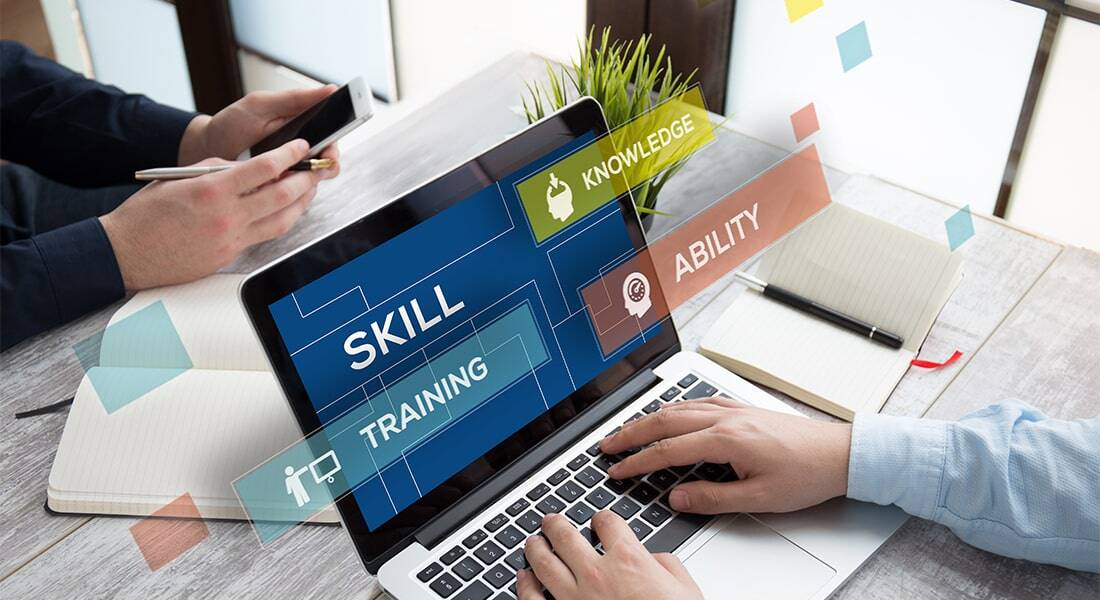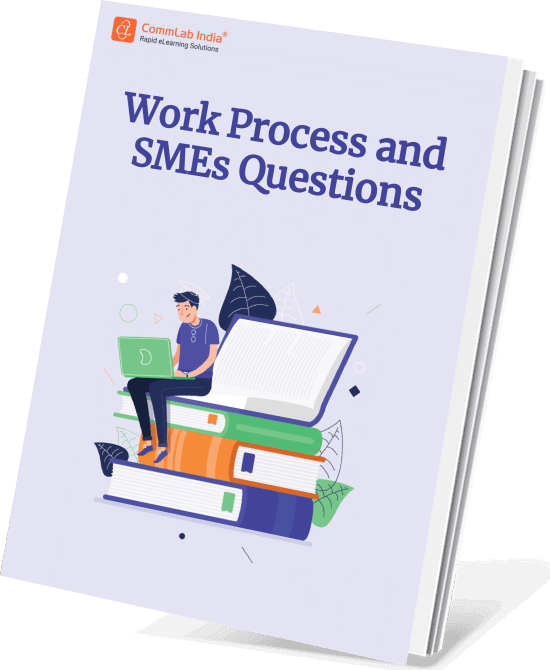Power Up Your Technical Sales Training with Custom eLearning!

Ever tried explaining a high-tech product or service to a customer and felt like you were speaking two different languages? That’s where technical sales training comes in. It’s all about equipping sales professionals with the know-how to confidently dive into the technical side of what they’re selling. With the right training, you can bridge the gap between complex product or service features and real-world customer needs, turning confusion into clarity—and ultimately, sales.
And custom eLearning is the perfect way to deliver technical sales training tailored to your unique offerings.
→ Download Template: Questionnaire to Gather SME Inputs for Training and Save Time
Table Of Content
- Why Should you Invest in Technical Sales Training?
- Why Bridge the Gap Between SMEs and Sales Teams?
- What are the Key Elements of Effective Technical Sales Training?
- How Custom eLearning Help in Technical Sales Training?
- Why Converting Webinars to eLearning Courses is a Game-Changer?
- How to Measure Technical Sales Training Effectiveness?
- How AI Redefines Technical Sales Training?
Why Should you Invest in Technical Sales Training?
Technical sales training is important because it equips sales teams with the knowledge and skills they need to effectively communicate the value of complex products or services. It helps them understand the technical aspects of what they’re selling, enabling them to address customer needs, answer detailed questions, and build trust. This technical and skills training not only boosts confidence but also improves sales performance, customer satisfaction, and long-term business success.

Why Bridge the Gap Between SMEs and Sales Teams?
One of the biggest challenges in technical sales training is the knowledge disparity between Subject Matter Experts (SMEs) and sales teams. SMEs are deeply familiar with the product's or service’s technical intricacies but may lack the expertise or bandwidth to effectively train sales teams. Sales representatives, on the other hand, may excel in communication and negotiation but struggle to fully grasp the technical aspects. Properly designed custom eLearning courses serve as a bridge between these two groups by translating complex technical information into accessible and actionable insights tailored for sales contexts. This alignment enables sales representatives to accurately articulate technical details, align solutions to client needs, and build trust with prospects, ultimately boosting sales effectiveness and overall business outcomes.
Watch this video for some quick and easy tips to help SMEs save time and boost efficiency!
What are the Key Elements of Effective Technical Sales Training?
1. Product Knowledge
A strong foundation in product or service knowledge is critical for technical sales training. Sales representatives must understand the features, benefits, and technical specifications of their offerings to confidently address customer questions and concerns. Technical training program should cover the product's or service’s basics, its competitive advantages, and any unique selling propositions (USPs). Interactive modules, product demos, and simulations can help representatives internalize this knowledge effectively. The goal is to enable sales representatives to position the product or service as the best solution for their clients' specific needs.
2. Problem-Solving Skills
In technical sales, customers often seek solutions to complex challenges. Technical training should emphasize the importance of active listening, analyzing customer pain points, and proposing custom solutions. Scenarios and case studies can help sales representatives practice identifying customer problems and demonstrating how the product resolves them. This equips them to engage in consultative selling, where they become trusted advisors who address customer needs comprehensively.
3. Tailored Sales Techniques
Not all customers have the same needs or level of technical understanding. Effective technical sales training should teach representatives to adapt their communication style, tone, and messaging based on the audience. This includes simplifying technical jargon for non-technical stakeholders and diving deeper into specifications for technically inclined customers. Role-playing exercises and customer segmentation training can refine these skills, ensuring representatives can effectively connect with diverse customer profiles.
4. Demonstrations and Use Cases
Product or service demonstrations and real-world use cases are powerful tools in technical sales. They allow customers to visualize how the product or service functions and the value it delivers. Technical training programs should guide representatives on how to conduct engaging, interactive demos that focus on the product or service’s benefits and unique capabilities. Use case training helps representatives understand how the product or service solves specific industry challenges, making their pitches more relatable and compelling. Incorporating these elements enhances the customer experience and builds trust in the product or service.
How Custom eLearning Help in Technical Sales Training?

eLearning courses are an effective tool for bridging the knowledge gap between subject matter experts (SMEs) and sales teams in technical sales. These courses provide a structured and flexible platform for sales representative to grasp complex technical concepts at their own pace. By integrating multimedia elements like videos, infographics, and quizzes, eLearning enables efficient knowledge transfer while keeping learners engaged. This is particularly critical in technical sales, where understanding intricate product or service details and processes is essential for effectively communicating value to potential customers. Leveraging custom eLearning ensures consistency in technical training programs and prepares sales teams to confidently handle inquiries and objections during client interactions.

Gather SME Inputs for Training
Editable Questionnaire to Save Time and Streamline the Process!
- Holistic questions to identify training needs
- Flexibility to share content inputs
- Easy to share, fill, save, access
- Eliminate gaps, misses, duplications
Why Converting Webinars to eLearning Courses is a Game-Changer?
Webinars, while informative, are often limited by time constraints and passive delivery. Converting webinars into eLearning courses can maximize their impact by dividing content into smaller, digestible eLearning modules. Adding interactivities keeps learners actively engaged. Incorporating insights and real-world “war stories” from SMEs enhance the learning experience, providing relatable examples and deeper context. With custom eLearning, it’s possible to track user progress, completion rates, and quiz scores, which provides valuable data for assessing the effectiveness of technical and skills training. This data can also help identify areas where additional training or reinforcement is needed.
Simulations and scenarios take it a step further by providing real-world context, allowing learners to practice applying their knowledge in safe, virtual environments.
Scenarios:
Scenario-based learning simulates real-world sales situations where the technical sales representative needs to solve customer problems using their product or service knowledge. These role-playing exercises can present different customer profiles with varying pain points, allowing representatives to practice customizing their sales pitches based on specific technical challenges. For example, a scenario could involve a customer who needs a solution for increasing data security, and the sales representative would have to explain how the product or service addresses this concern. This practice helps bridge the gap between theoretical product or service knowledge and practical sales skills.
Simulations:
eLearning simulations replicate the product environment and let sales representatives engage with a product in a virtual setting. These simulations can showcase how a product or service works and allow the sales team to interact with it directly, helping them understand its functionality and capabilities. For instance, a software product simulation might allow users to walk through its features, explore different use cases, and see how it addresses specific customer needs. This helps sales representatives internalize product knowledge by actively participating in the learning process, rather than simply being passive recipients of information.
How to Measure Technical Sales Training Effectiveness?
To ensure the success of technical sales training, it’s important to measure its effectiveness. This involves tracking whether sales representatives are able to translate their technical and skills training into improved performance in real-world scenarios, such as closing more deals or communicating technical concepts effectively to clients. Data-driven insights are essential for refining the technical training program.
Key Performance Indicators (KPIs)
- Key performance indicators are essential for evaluating technical sales training outcomes.
- Important metrics include:
- Increased sales revenue
- Reduced time to close deals
- Improved product knowledge scores
- Higher customer satisfaction ratings
Feedback and Improvement
Continuous improvement is crucial in technical sales training. Gathering feedback from trainees about the technical sales training program’s content, structure, and delivery can uncover areas for refinement. Additionally, regular evaluations and updates ensure the technical and skills training stays relevant, especially as technology and product and service offerings evolve. Adopting a feedback loop helps maintain high standards and equips sales teams to adapt to changing market demands.
How AI Redefines Technical Sales Training?
Artificial intelligence plays a growing role in technical sales training. AI-powered platforms can analyze individual performance, identify skill gaps, and recommend personalized learning paths. AI-driven chatbots can simulate customer interactions, helping sales representatives practice handling objections or responding to product or service-specific questions. Predictive analytics can also offer insights into which training content is most impactful, optimizing learning outcomes.
Discover how AI is revolutionizing corporate training, making learning faster, smarter, and more personalized than ever before.
Final Thoughts
Custom eLearning is essential for improving technical sales training by offering adaptable, scalable, and engaging learning opportunities. It helps sales teams understand intricate technical concepts, stay informed about industry developments, and build the expertise required to close deals successfully.Streamline your training like a pro with our SME Interview Template!
Quickly gather expert insights and create eLearning content that truly delivers. Download now and level up your training game!






![4 Ways to Create Microlearning for your Sales Training [Infographic]](https://blog.commlabindia.com/hubfs/Imported_Blog_Media/microlearning-for-sales-training-infographic.png)
![5 Reasons to Choose Video-Based Learning for Sales Training [Infographic]](https://blog.commlabindia.com/hubfs/blogs/reasons-choose-video-based-learning-sales-training-info.jpg)